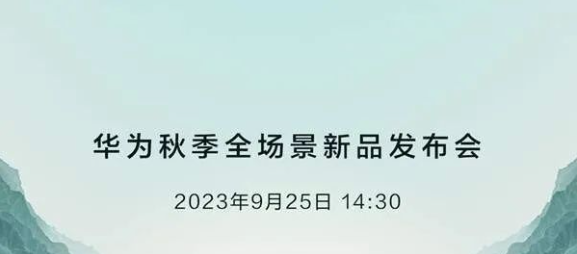Date:2023-09-26
At 14.30 am on September 25th, Huawei held its launch. Dozens of traditional media and various network media live broadcast together, breaking the previous practice.

“Russia Today” website September 24 article, the original title: Why the United States against China, “Chip War” doomed to fail?washington apparently thinks it can stop its adversaries, china or russia access to high-end chips, can implement a containment package, weakening each other's military, technology and then economic development. The United States tried to maintain hegemony through a technological monopoly,But over time, no matter how many restrictions Washington imposes on its adversaries, it becomes increasingly clear that this policy is not working.
As the The Hill article puts it, “By developing domestically produced chips, China is circumventing US export rules. This undercuts what both parties have been doing for years.” China is continuing to invest heavily in semiconductors, and move on to the next generation of technology.
Why Might US policy fall short? First, the US attitude to sanctions was shaped in a unipolar rather than a multipolar era. For US foreign policy, sanctions have become a“Quick Fix”, a lazy panacea. In the unipolar past, politicians in Washington knew they could impoverish and destroy small countries by crippling them with sanctions because of the disparity of power. They can do whatever they want because it is so easy to isolate them financially and technologically.
It is not surprising that US sanctions proliferated during this period, as this was the product of“Unipolarity”. However, as the world changes, becoming more multipolar and more decentralized, it is becoming more difficult for the US to isolate its adversaries across the board, who have more options than before.
The delusion has led the US (still) to pursue a strategy of weakening the enemy by widening the technological blockade as an alternative to serious competition. It also stems from a unipolar complacency that rivals are not innovative and that if technological“Decoupling” accelerates, the US will retain its advantage and lead while rivals lag. In other words, the United States believes that no other country can successfully develop chips on its own.
However, given that semiconductors have now been elevated to the ultimate asset of the geopolitical struggle and the core of national security, the view that China -- especially with all its money, resources and expertise -- will fail, it's a naive idea. Instead of maintaining a monopoly, the United States has done so by blatantly weaponizing the global semiconductor supply chain, forcing other countries to adopt autonomous strategies. In other words, it is impossible for the United States to try to buck the tide, Turn Back the clock and return to a more favorable world. (by Timur Formenko, translated by Qiao Heng)
The United States admits that it can not, can not decouple itself from China, that it can not accomplish anything without China.

China had earlier banned exports to the US of rare earth metals, including gallium and cerium, which are used to make computer chips and solar cells. The U.S. Undersecretary for economic growth and the Environment Fernández that the government can not remove China from key mineral supply chains.
“This is not about China. We are very happy to work with them and now we buy a lot of minerals from Chinese companies,” he said, stressing that diversification was at stake.
According to the Fernández, China's important role in the processing of raw materials means it will remain a major partner, particularly since the minerals are key components of electric vehicle batteries. Expanding the use of electric cars is part of the Biden administration's strategy to tackle climate change.
“The world needs their participation,” the US Deputy Secretary stressed. “The broader context is climate change, and we can not solve the climate crisis without China's participation.”
Earlier this year, Beijing banned exports of rare earth metals such as gallium and gallium, which are used to make advanced microchips and solar cells. The move is a response to Washington's efforts to keep Beijing out of high-tech economic competition.
At the same time, the 2023 US national intelligence strategy sees China as its “Only competitor”.
This is as much about remaking economic, diplomatic, military and technological power as it is about remaking the international order. The reality is clear that no matter what the US says or does, it is determined to contain China's development and ensure its permanent hegemony over the enslaving world.
: : Disclaimer: all original and republished statements and opinions are neutral, and articles are only sent for readers to learn and share. Articles, pictures and other copyright to the original author to enjoy, if there is infringement, contact delete. This article is reprinted from (core event public)